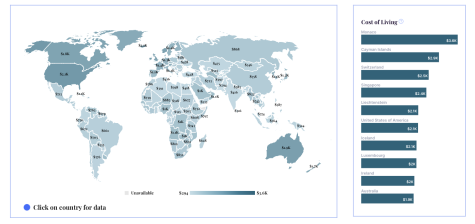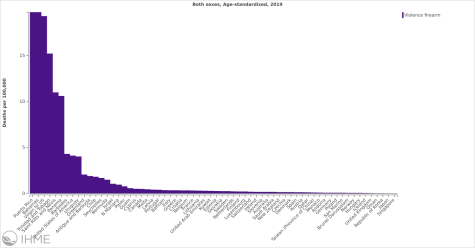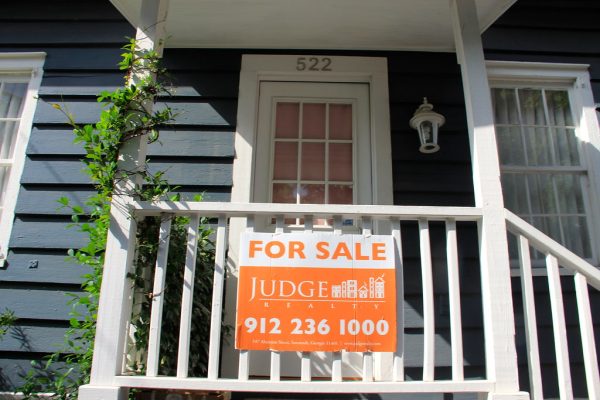Land of the Free or Land of the Flee
In recent years, an increasing number of U.S. citizens have been relocating to different countries. The economy, politics and personal considerations are reasons for this trend.
The cost of living in the U.S. is becoming a burden on its citizens. Inflation is continuously on the rise, making it harder to afford basic necessities. It has also been effecting the prices of housing and health care. According to WiseVoter, the U.S. ranks #6 in the countries with the highest cost of living in the world.

Samantha Peko, a communications professor at the University of North Georgia, feels like the U.S. falls short when it comes to health care, education, transportation and gun control. Regarding her health care, she says, “I spend nearly $100 on health insurance each month but I have a $5,000 deductible. Because of this, I can’t see a doctor without paying out of pocket. It’s a lot and it’s a shame to not want to see the doctor because you don’t want to look at the bill after the visit.”
Gun violence has been a devastating problem in the U.S. as well. According to the Institute for Health Metrics and Evaluation, the U.S. ranks first for high-income countries and territories with populations of 10 million or more in firearm-related homicides.

“I think guns are a big problem here. I don’t like hearing on the news that there’s been a mass shooting. It’s sad that we can’t figure out how to fix the problem.” – Samantha Peko, communications professor at UNG
For Florence Adesope, a senior civil engineering major at UNG, the lack of safety and gun control is a big factor for her. She says, “The U.S. fails in gun control and keeping places safe. The rate at which shootings occur is ridiculous, especially for this country to be as big and loud as it is and not do anything about it.”
Adesope believes her future kids could thrive in the U.S., but she says, “With the way mass shootings are occurring, especially in K-12 schools, and the country not doing anything to stop it, isn’t beneficial for me or my future kids.”
Peko feels like her children wouldn’t be able to succeed as adults growing up in the U.S. She says, “I think the gun problem is getting worse and we don’t really seem to be getting anywhere with fixing health care or education.” The amount of student debt averages $28,950, totaling up to $1.75 trillion for the country.
“I was hoping that Biden could write off student loans and that it may be a step towards providing more affordable higher education. But I don’t know what will happen with that. I don’t like that my students will have to be in debt after they graduate, especially when jobs are not a guaranteed thing after college,” says Peko.
Peko had the opportunity to live in Germany. She enjoyed her stay there because of their social welfare programs, the system of transportation, free health care and education.
Contrary to other countries, the U.S. may be falling behind in their advancement for their citizen’s necessities.
Your donation will support the student journalists of University of North Georgia. Your contribution will allow us to purchase equipment and cover our annual website hosting costs.
Trinity is a Senior Staff Editor for the Vanguard. She is a Senior Communications major with a concentration in Multimedia Journalism. Celebrity drama...

































